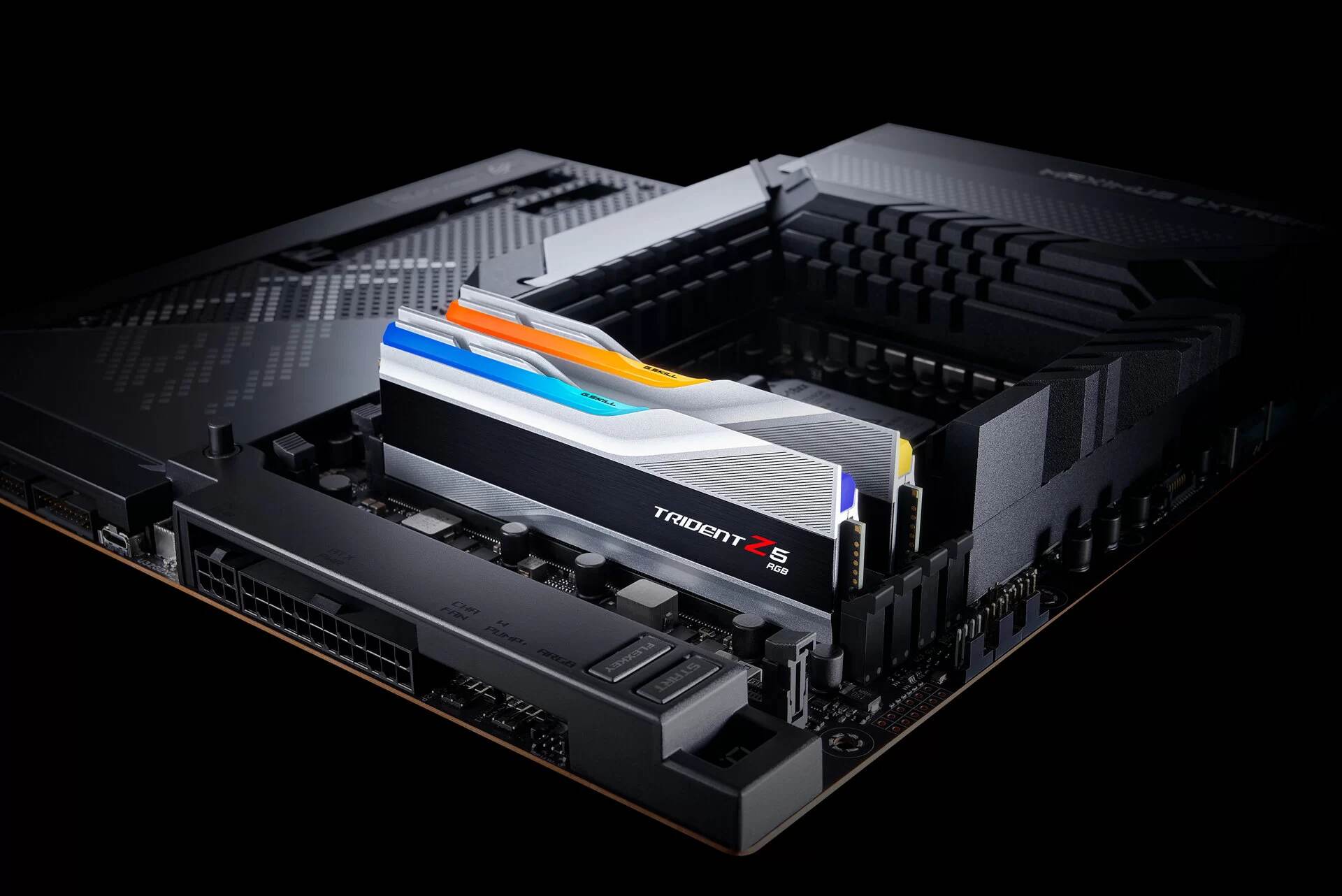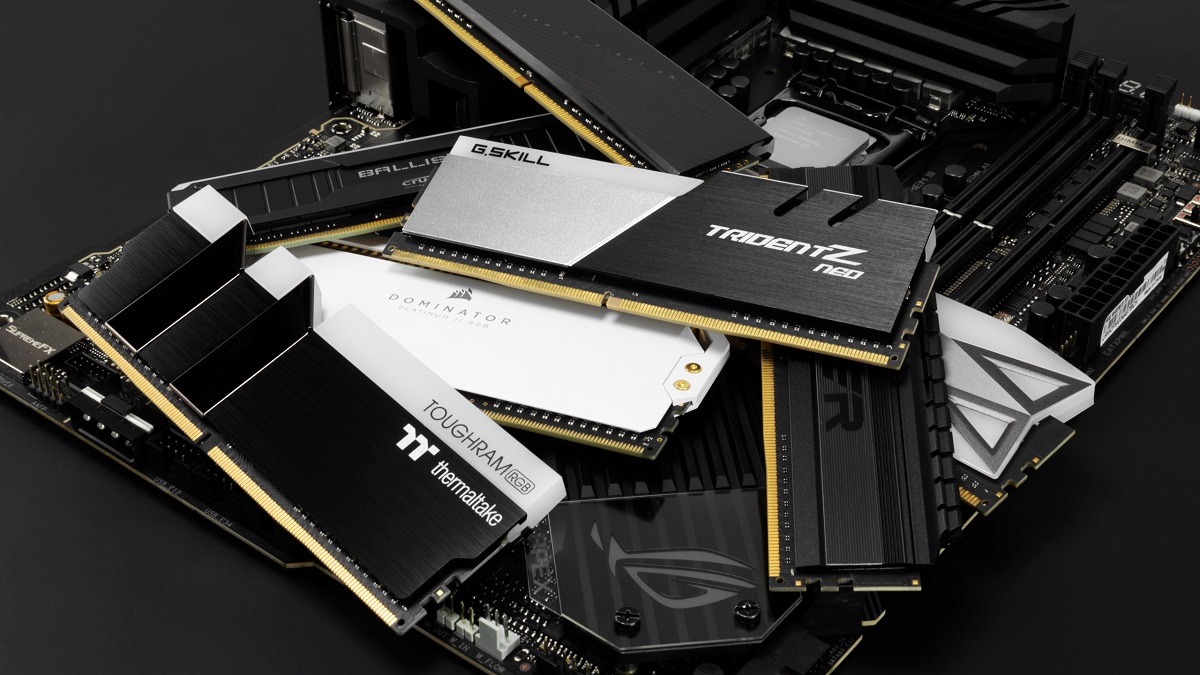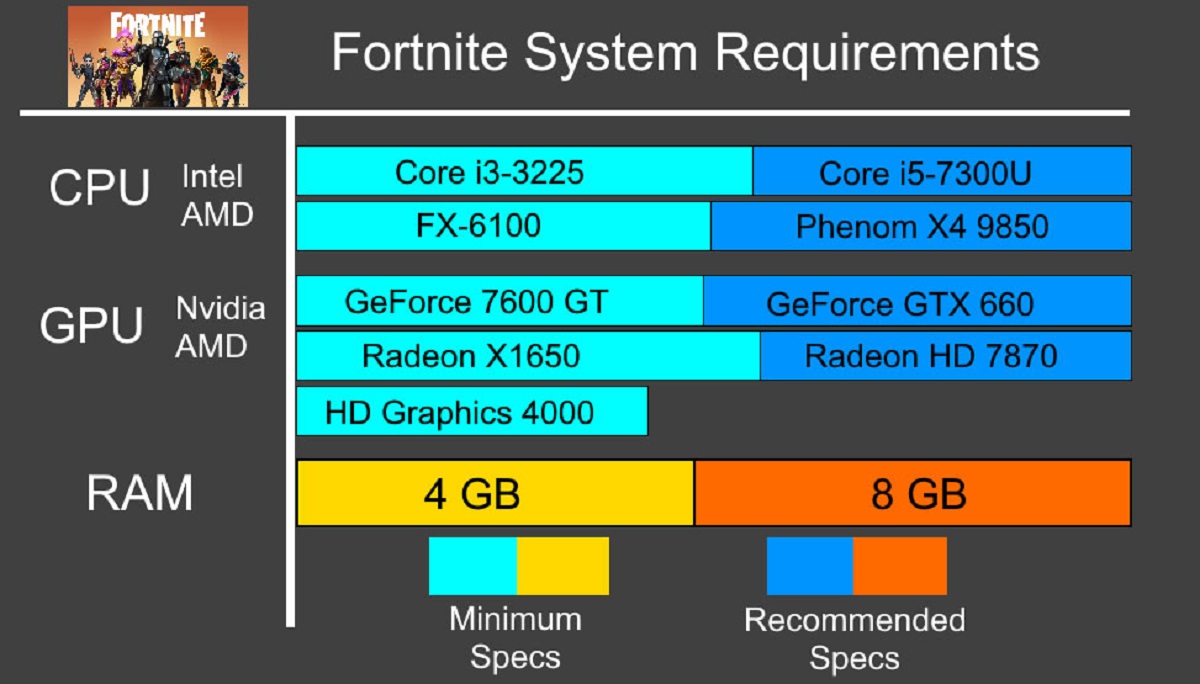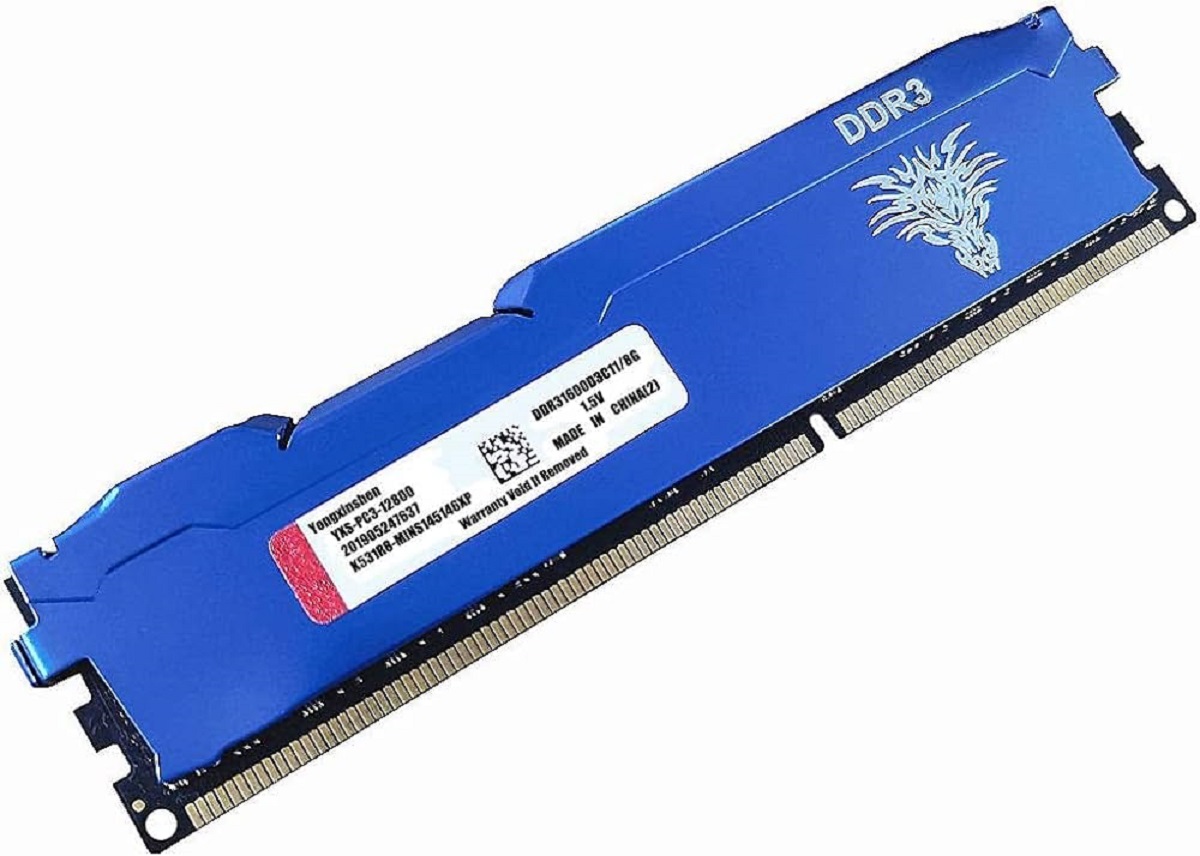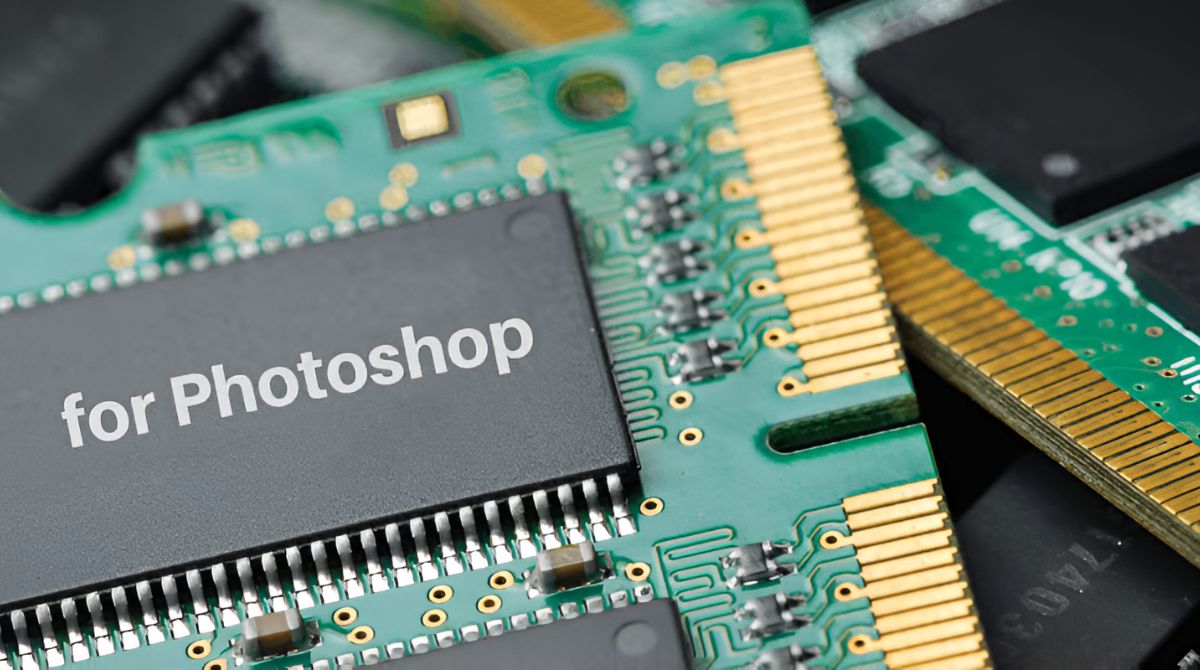Introduction
Welcome to the world of computer hardware, where every component plays a vital role in the overall performance of your system. One such crucial component is the RAM (Random Access Memory), which has a significant impact on the functionality and speed of your computer. RAM is responsible for temporarily storing data that your computer actively uses to perform various tasks. The more RAM your system has, the better it can handle multiple processes simultaneously, resulting in enhanced performance.
In this article, we will explore the various ways in which RAM affects the overall functionality and user experience of your computer. From multitasking to gaming performance and even future-proofing your system, RAM plays a crucial role in ensuring a smooth and efficient computing experience.
Before we dive deeper, it’s important to clarify that RAM is a different component from the computer’s storage drive (such as an SSD or HDD), which is responsible for long-term data storage. While storage capacity is important for storing files and applications, RAM impacts the speed and responsiveness of your computer during its active usage. Think of it as a workspace for your computer’s processor, allowing it to quickly access and manipulate data to perform tasks.
Now that we understand the basics, let’s explore the various aspects of computing in which RAM has a significant impact. Whether you are a casual user, a gamer, a creative professional, or someone who likes to experiment with virtual machines, understanding how RAM affects these areas will help you make informed decisions when it comes to upgrading or choosing a new computer system.
Performance
When it comes to overall system performance, RAM plays a critical role. It directly affects how fast your computer can process information and execute tasks. The more RAM you have, the more data your computer can hold in its memory, reducing the need to constantly access the slower storage drive. This results in faster response times and smoother workflow, especially when dealing with resource-intensive tasks.
For example, if you frequently work with large files or run memory-intensive applications like video editing software or virtual machines, having ample RAM is essential. It allows your computer to store and manipulate the necessary data in its memory, avoiding constant swapping between RAM and storage drive. This reduces the overall processing time and ensures that your computer can handle these tasks efficiently. Additionally, if you’re a gamer, having sufficient RAM can enhance your gaming performance by providing the necessary space for temporary game data, reducing lag and improving overall gameplay experience.
RAM also plays a significant role in multitasking. If you find yourself frequently switching between multiple applications or running several programs simultaneously, having more RAM can prevent your system from becoming sluggish. With enough RAM, your computer can keep all the necessary data for each active program readily accessible, resulting in a smoother multitasking experience.
It’s worth noting that while increasing RAM can improve performance up to a certain point, it’s essential to ensure that other components, such as the processor, also meet the demands of your computing tasks. A balanced system with a powerful processor and ample RAM will provide the best overall performance.
In summary, RAM directly affects the performance of your computer by allowing it to process and store data efficiently. Whether you’re working with large files, running memory-intensive applications, multitasking, or gaming, having sufficient RAM can significantly enhance your overall system performance. By ensuring that your computer has enough RAM to handle your specific needs, you can enjoy a faster and more responsive computing experience.
Multitasking
In today’s fast-paced world, multitasking has become a common practice for many computer users. Whether you’re a student juggling multiple research projects, a professional handling various work-related tasks, or simply someone who enjoys having multiple applications open at once, a system with sufficient RAM is crucial for a seamless multitasking experience.
RAM allows your computer to store and access data from multiple applications simultaneously. When you switch between different programs or tasks, having enough RAM ensures that your system can quickly retrieve the required data from its memory, reducing lag and improving overall responsiveness.
For example, let’s say you’re working on a document in Microsoft Word while simultaneously having a web browser open with multiple tabs. Without sufficient RAM, your computer may struggle to keep both applications running smoothly. It may experience slow response times, freezing, or even crashes. However, with ample RAM, your system can allocate the necessary memory for each task, allowing you to seamlessly switch between applications without any performance issues.
Moreover, multitasking extends beyond work-related tasks. Many individuals use their computers for entertainment purposes, such as streaming videos or playing music while browsing the internet or editing documents. With enough RAM, you can enjoy a fluid multitasking experience, where your computer effortlessly handles these tasks concurrently, ensuring a smooth and uninterrupted entertainment session.
It’s important to note that the extent of effective multitasking also depends on the specific applications you’re using and their resource requirements. Some programs are more demanding in terms of memory usage, and thus, having more RAM becomes even more vital.
To optimize your multitasking experience, consider upgrading your RAM if you frequently find your system slowing down or becoming unresponsive when you have multiple programs open. By providing your computer with sufficient memory, you can unleash its multitasking capabilities, enabling you to work or enjoy various activities without any performance issues.
Application Loading Times
One of the primary aspects of user experience is how quickly applications load and respond to user input. RAM plays a significant role in determining the loading times of various applications on your computer.
When you launch an application, it needs to access the necessary files, data, and resources from your storage drive and load them into memory. The more RAM your system has, the more data it can hold in memory, allowing applications to load faster. With ample RAM, your computer can keep frequently used files and resources readily accessible, reducing the time it takes for applications to start up.
For example, imagine you’re working with a resource-intensive software like Adobe Photoshop. This application requires a significant amount of memory to load all the necessary tools, brushes, and image data. If your computer has insufficient RAM, Photoshop may take longer to start, and you may experience delays when accessing certain features or processing high-resolution images. However, with enough RAM, the application can load quickly, allowing you to seamlessly navigate through its interface and swiftly apply edits to your images.
Furthermore, having adequate RAM can also improve the overall responsiveness of applications while they’re running. With more memory available, the system can store additional temporary files and resources, minimizing the need for constant read-and-write operations to the storage drive. This results in smoother performance and reduced lag, particularly when working with demanding applications like video editors or 3D modeling software.
In addition to productivity-related applications, gaming is also affected by application loading times. Today’s modern games often have large file sizes and high-quality graphics. Having sufficient RAM enables efficient loading of game assets, reducing load times, and improving the overall gaming experience. It allows games to run smoothly, with minimal stuttering or frame rate drops.
If your computer takes a long time to load applications, or if you experience delays and performance issues while using resource-intensive software or playing games, upgrading your RAM can significantly improve the loading times and overall performance.
Gaming Experience
For gamers, having a satisfying and immersive gaming experience is a top priority. RAM plays a crucial role in enhancing the performance and overall enjoyment of gaming on your computer.
When it comes to gaming, RAM impacts several aspects that contribute to a smooth and responsive gaming experience. Firstly, games require a significant amount of memory to store and load all the necessary game assets, such as textures, models, and audio files. Insufficient RAM can result in longer loading times, as the game has to constantly fetch data from the slower storage drive instead of accessing it quickly from memory. With ample RAM, games can load more efficiently, reducing the waiting time and allowing you to jump into the action faster.
In addition to faster loading times, RAM also influences the performance of games during gameplay. Modern games often require a considerable amount of memory to handle the complex and detailed environments, as well as the AI behavior and physics calculations. Insufficient RAM can lead to performance issues like stuttering, frame rate drops, or lag. With more RAM, your computer can store and retrieve the necessary game data in memory, ensuring smoother gameplay with high frame rates and minimal interruptions.
Another important aspect of gaming is the ability to run multiple applications or programs simultaneously. This includes running game capture software, voice chat applications, or streaming software. Having enough RAM allows your computer to handle these additional tasks without impacting the gaming performance. It ensures that you can easily record or stream gameplay, communicate with teammates, or engage with other applications without sacrificing the smoothness of your gaming experience.
Furthermore, with the rise of online multiplayer gaming, RAM plays a part in providing a stable and lag-free gaming experience. Sufficient memory allows your computer to keep the necessary game data in memory and quickly send and receive information from the game server. This ensures minimal latency and a more responsive connection, reducing the chance of experiencing network-related issues or delays during online gameplay.
In summary, RAM significantly impacts the gaming experience by enhancing loading times, overall performance, multitasking capabilities, and network connectivity during online gaming. Upgrading your RAM can provide a noticeable improvement in gaming performance, allowing you to enjoy your favorite games with smoother gameplay, faster loading times, and a more immersive experience.
Virtual Machines and Emulators
Virtual machines and emulators have become increasingly popular among users who need to run multiple operating systems or simulate different environments on their computers. RAM plays a critical role in the performance and functionality of virtual machines and emulators.
Virtual machines, such as VMware or VirtualBox, allow you to create and run multiple operating systems simultaneously within a single host operating system. These virtual environments require dedicated system resources to operate efficiently. RAM is a key component in this equation as it determines how much memory space can be allocated to each virtual machine. The more RAM you have, the more virtual machines you can run concurrently, and the smoother they will perform.
Each virtual machine requires a specific amount of RAM to function optimally. Insufficient RAM allocation can result in sluggish virtual machine performance, slower response times, and even crashes. By providing sufficient RAM to each virtual machine, you can ensure responsive and efficient operation, allowing you to seamlessly switch between different operating systems and run resource-intensive applications within each virtual environment.
Similarly, emulators allow you to run software or games designed for a specific platform on a different platform. For example, an Android emulator enables you to run Android applications on your computer. Emulators rely heavily on RAM to create a virtual environment that mimics the target platform. Insufficient RAM can lead to slower performance, delays, and compatibility issues when running emulated software or games. Having more RAM allows the emulator to allocate the necessary memory resources and ensures smooth operation.
Whether you use virtual machines or emulators for work-related tasks, software development, or gaming purposes, providing ample RAM is crucial to their efficient and optimal performance. It allows you to leverage the full potential of virtualization and emulation, enabling you to run multiple operating systems or emulate different platforms seamlessly.
Keep in mind that the RAM requirements for virtual machines and emulators can vary depending on the specific applications or environments you’re working with. It’s essential to assess your needs and allocate sufficient RAM accordingly to achieve the desired performance and functionality.
Web Browsing
Web browsing has become an integral part of our daily lives, whether for work, research, communication, or entertainment. RAM plays a significant role in ensuring a smooth and responsive web browsing experience.
Modern web browsers have evolved to handle complex web pages, multimedia content, and interactive applications. When you visit a website, the browser needs to load and render various elements, such as HTML, CSS, JavaScript, images, and videos. The more RAM your computer has, the more data it can store in memory, allowing the browser to quickly retrieve and display these elements.
Having ample RAM can improve page load times, especially when accessing content-rich websites or dealing with multiple tabs. With sufficient memory, the browser can store the necessary assets, allowing for faster rendering and a smoother browsing experience. It reduces the need for constant data retrieval from the slower storage drive, resulting in reduced page loading times and quicker navigation between different websites.
In addition to faster page loading, RAM also plays a role in handling browser extensions and plugins. Many users rely on various extensions to enhance their browsing experience, for tasks such as ad-blocking, password management, or productivity tools. These extensions require memory resources to function properly. If you have limited RAM, running multiple extensions simultaneously may lead to increased memory usage and potential performance issues. By providing adequate RAM, you can ensure that your browser and its extensions can coexist without impacting overall performance.
Another aspect of web browsing is multitasking. As you switch between different tabs or open multiple websites simultaneously, having sufficient RAM enables your computer to keep these websites active in memory, reducing the need to constantly reload them when you switch back and forth. This allows for smoother multitasking and a more seamless browsing experience.
It’s worth mentioning that web browsing habits have changed over the years, with the increasing popularity of web-based applications and streaming services. These applications can also benefit from additional RAM, as they require memory to store and process data locally, reducing reliance on frequent data requests from the internet.
In summary, RAM has a significant impact on web browsing performance. With adequate memory, your computer can handle the demands of rendering web content, loading pages faster, supporting browser extensions, and facilitating multitasking with multiple tabs. By ensuring you have sufficient RAM, you can enjoy a smoother, more efficient web browsing experience.
Video and Image Editing
Video and image editing tasks require a significant amount of system resources, and RAM plays a crucial role in their efficient execution. Whether you’re a professional photographer, a videographer, or a hobbyist editing videos or working with high-resolution images, having sufficient RAM is essential for a smooth and responsive editing experience.
When you open an image or video in editing software like Adobe Photoshop, Lightroom, or Premiere Pro, the application loads the necessary files and resources into memory. Having ample RAM allows these applications to store and manipulate the large amounts of data associated with videos and high-resolution images.
With limited RAM, your computer may struggle to handle resource-intensive tasks such as rendering complex visual effects, applying filters, or working with multiple layers. It can lead to sluggish performance, slow response times, and increased rendering times. By increasing your RAM capacity, you provide more memory for these applications to work with, resulting in faster processing, smoother preview playback, and improved overall performance.
RAM also plays a crucial role in multitasking while editing videos or images. When working on complex projects, you might need to have multiple applications and tools open simultaneously, such as video editing software, image editing software, and color grading applications. Insufficient RAM can cause your system to slow down or crash when switching between these applications or working on multiple tasks at once. With ample RAM, you can smoothly run these applications together, making your workflow more efficient and enhancing your editing experience.
Furthermore, having sufficient RAM is particularly important when working with large video files or high-resolution images. These files require a significant amount of memory to load and manipulate. Insufficient RAM can lead to constant swapping between the storage drive and memory, resulting in slow performance and frustration. By having adequate RAM, your computer can keep the necessary data in memory, reducing the need for frequent file access and enhancing the overall editing experience.
It’s worth noting that while RAM is crucial for video and image editing, other factors, such as the processing power of your computer’s CPU and the capabilities of your graphics card, also contribute to the overall performance. It’s important to have a well-balanced system to achieve optimal editing performance.
In summary, having sufficient RAM is paramount for video and image editing tasks. It allows editing software to efficiently store and manipulate large amounts of data, enables multitasking with other editing tools, and enhances the overall performance when working with resource-intensive projects. By upgrading your RAM, you can enjoy faster rendering times, smoother playback, and a more seamless editing experience.
File Compression and Extraction
File compression and extraction tools are widely used in various scenarios, from sharing files over the internet to organizing and archiving data. RAM plays a significant role in the efficiency and speed of file compression and extraction processes.
When you compress files using tools like WinRAR, 7-Zip, or WinZip, the software reads and processes the data before compressing it into a smaller size. With ample RAM, the compression software can store the necessary data in memory, reducing the need for constant access to the storage drive. This results in faster file compression times as the software can quickly access the data needed for the compression algorithms.
On the other hand, when it comes to file extraction, having sufficient RAM allows for faster extraction speeds. When you extract compressed files, the software needs to decompress the data and restore it to its original state. Similar to compression, having enough RAM ensures that the extraction tool can keep the necessary data in memory, avoiding constant read operations from the storage drive. This leads to quicker extraction times and a more efficient workflow.
Large files or archives, such as high-resolution images or extensive video projects, put a strain on the system resources, including RAM. When working with these larger files, having sufficient memory becomes even more crucial. Insufficient RAM can cause slowdowns or even crashes during compression or extraction processes, as the system struggles to keep up with the data requirements. By increasing your RAM capacity, you provide the necessary space for these resource-intensive operations, resulting in smoother and faster file compression and extraction.
File compression and extraction processes often involve multiple files or even entire directories. Here, multitasking capabilities come into play. With enough RAM, your computer can handle larger filesets, allowing you to compress or extract multiple files simultaneously without sacrificing performance. This is particularly useful when dealing with large-scale archiving or backup tasks.
It’s important to consider that other factors, such as the speed of your storage drive (e.g., SSD or HDD) and the processing power of your CPU, also contribute to the overall performance of file compression and extraction. A well-balanced system, with sufficient RAM and capable hardware components, ensures optimal efficiency and speeds up these processes.
In summary, RAM plays a crucial role in file compression and extraction tasks. Having sufficient memory allows compression and extraction software to operate efficiently, resulting in quicker processing times and a more seamless workflow. If you frequently work with large files or folders, upgrading your RAM can significantly enhance the speed and efficiency of these operations.
Overall System Stability
RAM is not only important for specific tasks or applications but also plays a vital role in maintaining the overall stability of your computer system. Sufficient RAM contributes to a stable computing environment by ensuring smooth operation, preventing crashes, and reducing the occurrence of system slowdowns.
When your computer runs out of RAM, it relies on virtual memory, which involves using a portion of the storage drive as temporary memory. However, virtual memory is significantly slower compared to physical RAM. If your system frequently exceeds its RAM capacity and relies heavily on virtual memory, it can result in noticeable performance degradation.
Insufficient RAM combined with frequent swapping between physical memory and virtual memory can cause system instability. For example, you may experience frequent crashes, freezes, or unresponsive behavior when running resource-intensive applications or performing multitasking operations.
By upgrading your RAM, you provide your system with more memory to handle demanding tasks without relying on virtual memory. This reduces data swapping between RAM and the storage drive, resulting in improved stability, smoother performance, and fewer instances of system slowdowns or crashes.
RAM also contributes to the stability of the operating system (OS) itself. The OS relies on RAM to store frequently accessed files and data, including system processes and services. Sufficient RAM allows the OS to keep these essential system components readily available in memory, ensuring their efficient execution and minimizing delays or errors.
Another aspect of system stability is the ability to handle multiple applications or processes simultaneously. Insufficient RAM can lead to system resource conflicts and increased CPU usage, which can affect the stability of the entire system. Having adequate memory allows for smoother multitasking, reducing the chances of conflicts and increasing the overall stability of your system.
It’s important to consider the RAM requirements of the specific operating system and applications you use. Different operating systems and software have varying memory requirements, and insufficient RAM may impact their stability. Make sure to check the recommended system requirements and allocate sufficient RAM to ensure optimal stability.
In summary, RAM is a crucial component for maintaining overall system stability. Having sufficient memory helps prevent crashes, reduces system slowdowns, and provides a stable computing environment. By upgrading your RAM to meet the demands of your operating system and applications, you can enjoy a stable and reliable computer experience.
Future-proofing
When considering upgrades or purchasing a new computer system, it’s important to future-proof your investment to ensure it can handle the demands of upcoming technologies and software. RAM plays a critical role in future-proofing your system by providing the necessary memory capacity for advanced applications and computing needs.
With the continuous advancement of software and technology, the requirements for memory-intensive tasks are constantly increasing. By investing in ample RAM, you can prepare your system to handle future software updates, new applications, and emerging technologies without experiencing performance limitations.
For example, as software evolves to incorporate more advanced features, it often becomes more resource-intensive. This includes applications like video editing software, virtual reality (VR) applications, and complex 3D modeling software, among others. These applications demand significant memory resources to handle the large amounts of data they process. Having a higher RAM capacity ensures your system can meet the requirements of future versions of these software programs, allowing for more efficient and enjoyable use.
Additionally, as technology advances, the file sizes of multimedia content, such as high-resolution images and 4K videos, are increasing. These files not only require more storage space but also demand extra memory for rendering, editing, and playback. By having sufficient RAM, you can future-proof your system to handle these larger file sizes and ensure smooth performance when working with them.
Moreover, as we continue to embrace the era of multitasking and working across multiple applications, having ample RAM is crucial to maintaining productivity and efficiency. Future software updates may introduce new features and functionalities that increase the demand on memory resources. By having more RAM, you can confidently run multiple applications simultaneously, ensuring a smooth workflow and preventing performance bottlenecks.
Furthermore, as technology advances, internet browsing experiences are becoming more immersive and interactive, with web applications utilizing advanced graphics and multimedia elements. Future browser updates and web-based applications may require more memory to provide smooth and responsive user experiences. By having sufficient RAM, you can enjoy these future enhancements without encountering performance issues or limitations.
In summary, future-proofing your computer system by investing in sufficient RAM capacity is essential for staying ahead of the rapidly evolving technological landscape. Ample memory allows your system to handle future software advancements, emerging technologies, and increasing demands of resource-intensive tasks like video editing, multimedia playback, and multitasking. By future-proofing your system with enough RAM, you ensure that your computer can remain capable and performant as technology progresses.









